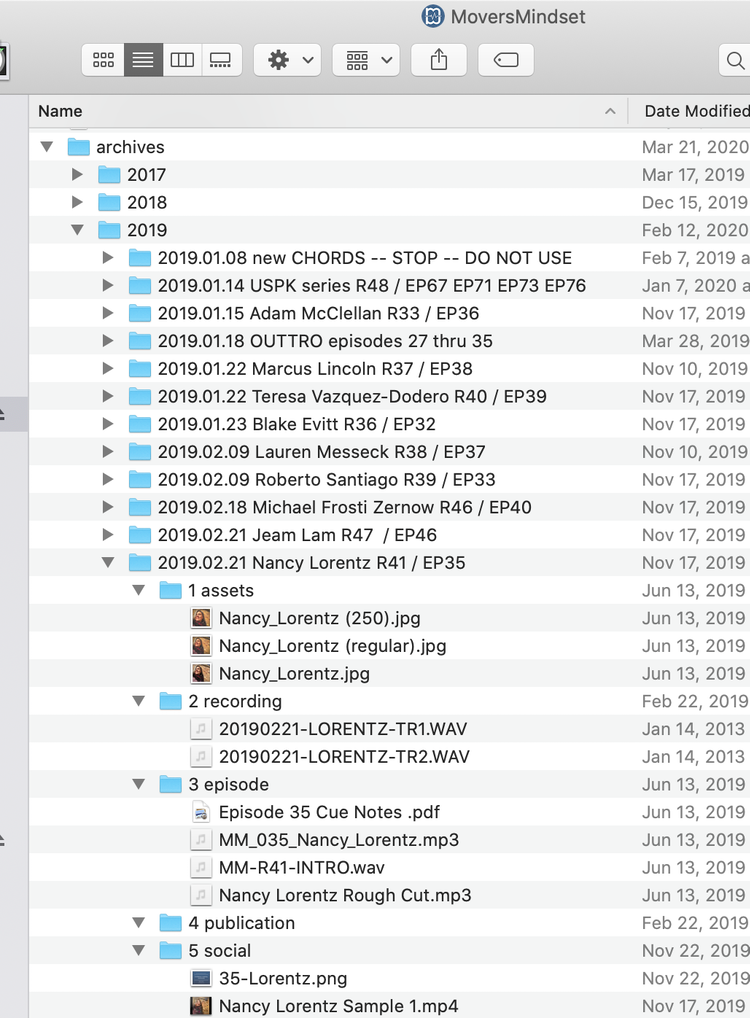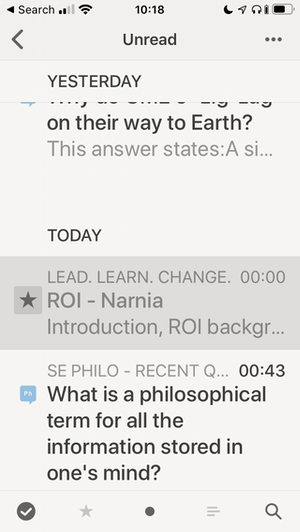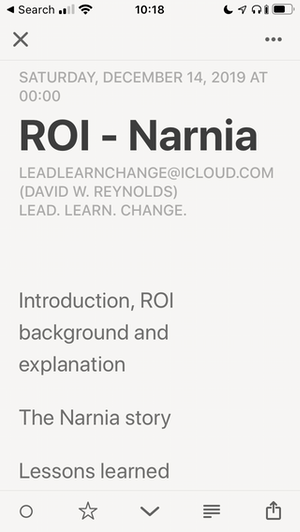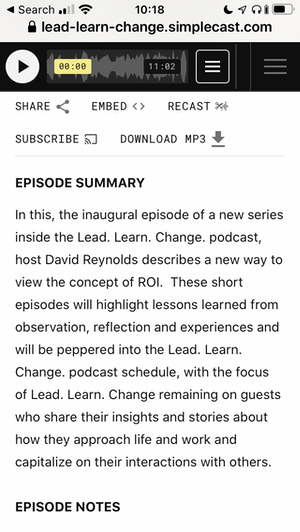Adam McClellan / Episode 1
The story behind episode one is challenging. How much do we want to know? How much do we want to share about the birth of the podcast? That all plays into Episode One. I picked Adam as the first guest because I wanted a guinea pig. I had bought a Zoom recorder and some microphones and cables. There’s a guy who did our audio editing for the first two years, and I had sent him some test audio files just to verify that when I press “Record” it does what we think it does.
I had been training with Adam for years, so I approached him and said, “Hey, I’m thinking about starting a podcast. You want to sit down and have a conversation?” In hindsight, I now realize it takes a lot of chutzpah to actually say, “Okay, I’ll sit down with microphones,” but he was totally up for it. I said, “I need a guinea pig. I’m going to screw it up, and I want you to just be game for a radical F-up.” And, sure enough, now I realize the zeroth rule of podcasting is always press “Record” and then double-check that you’ve actually pressed “Record.” These days we actually have a system, because sometimes it still happens. The person who sits in and listens actually takes notes and uses the time codes from the recorder. So you have to actually look at the recorder, and if the timer isn’t running, we know that I haven’t pressed “Record.”
So, of course, when I sat down to record the podcase with Adam, we started right into it. I had looked at my watch and noted the time when we started, but 13 minutes into it I looked at the recorder and realized the recorder wasn’t recording. I said, “Hey, Adam, remember when I asked if you’d be a guinea pig because I’m going to mess it up? I messed it up. We’re not recording.” So then I pressed “Record” and we started over.
In hindsight, I’m really glad I fell on the sword on the first episode, because it taught me to be humble about when I screw up in a recording. If we’ve gone down the wrong path or I ask a dumb question, I immediately own up to it, like, “Whoa, we screwed this up,” or “You know what, that fire engine went by and screwed up your answer.” It taught me a lesson right out of the gate about being humble about the physical craft part of podcasting, because we really only get one chance. If the take that we get isn’t the greatest … It’s our responsibility to present the guest in their best light, and if there’s something wrong with the take, we need to own up to that. So that was the technical side of the first episode.
Tracy was helping at the time and doing some guest research. We had done a bunch of research on Adam and I had even written out some questions. Looking back now, I realized that writing out all your questions is the right thing to do, although I don’t do it now. But what I should’ve then done is crumpled up the list and thrown it away and gone into the interview with nothing between me and the guest. I had a piece of paper—actually, I think I had my computer. I realize now that, yes, you want to think of the questions, but then you also want to just try and forget them.
I stuck to the script with Adam and it worked out well. Adam is very good at talking and finding a thread, but I really wasn’t helping him very much by providing him with a conversation. That’s one of the things that I realize now is really important for guests, especially some guests who are a little more reticent to talk—not just to have the recording equipment and be able to create the physical space, but to create a conversation between myself and the guest where the guest is interested in continuing to talk.
With Adam, I served him these individual questions tennis-style and then asked a follow-up question or made a comment while he was answering. I pretty much just let him run on his train of thought and then I would present him with the next question. The episode is interesting though. The material is good; it still holds up three years later. But I can hear that it’s just me serving him simple questions. I love listening to it occasionally, because it reminds me of how the way that I craft the story that the narrative in each episode is vastly different, which is just a result of me listening to other people’s podcasts and listening to how people structure them, how the craft works, taking courses, and things like that. So that’s a bit of the technical and a little bit of in front of the mic.
There is a moment in that episode pretty early on where I mention an essay that Adam wrote. I don’t know how we found it, but we had come across this essay on the internet that was actually from Adam’s entrance application for college. I said, “Elsewhere you’ve written about … ” and named a couple of things that were in the essay, and it really made him do a double-take. He said something like, “Wow, you really, really dug at me. I kind of wrote that satirically. I don’t know how you ever found that. I need to go look at my social media to see where I had that online that I had forgotten about.” It was a fun moment where I had caught him off guard and at the time I thought, “Oh, that was interesting.” It took me a while to learn this lesson, but, looking back, I realized that just because I have information that’s interesting or even something a little bit controversial about a guest doesn’t mean I actually want to use that.
I’ve found that it can be hard sometimes if I know too much. You can’t forget something, it’s always going to be in the coloring of your questions. But if I know too much and I say, “Hey, I know about this,” that can really change the tone of the conversation. It can be too big of a gun to bring into the conversation. A lot of times it’s more fun to just know all these things about the guest and then to ask them a leading question to give them the opportunity to bring it up if they want. And then if they choose not to, the conversation just flows where they want.
Sometimes I feel more like I’m trying to create rapids in a river and then see how they whitewater raft down what I’ve created. It’s more like creating opportunities. “Hey, I have a couple of these obstacles and we’d like to roll them into the path. You want to go over this one or do you want to go over that one? Or you can go through the open field.” It took me a long time – maybe 50 interviews – to really figure out what I need to bring in, in terms of knowledge about the guest.
Sometimes there are things that the audience needs to know about because they’re just so awesome and the guest is just going to be too humble and, I’m like, “I’m sorry we have to talk about this because it’s awesome.” But a lot of the time, the things I know about the guests don’t really need to be brought in. It’s just background that helps me color what we’re talking about. So that first interview really went amazingly well considering how I just leapt into it like, “What could possibly go wrong?” There’s a lot that can go wrong, but it really, really well.
I would say the greatest lesson I learned was having nothing between me and the guest. It took me a while to really learn the lesson to literally not put things between me and the guests because I continued doing that for several episodes, but that was the only interview where I showed up with a script or list of questions. I had an idea about how the whole interview should go and that, in my opinion, does not work. It certainly doesn’t work for the way that I do interviews and the way the podcast works.
You can totally think about how you want it to go, but don’t bring that plan to the actual interview. Don’t attempt to lead the guest to a particular place that you have in mind. That was the takeaway. I didn’t learn it immediately after Episode One, but that lesson is there in that first episode. I would say it’s probably in the first six episodes, because there’s some things that changed with seven – it became a lot more nimble at seven and beyond. I think that’s the biggest takeaway: Don’t go in with a preconceived idea of where the conversation is going to go.
ɕ




